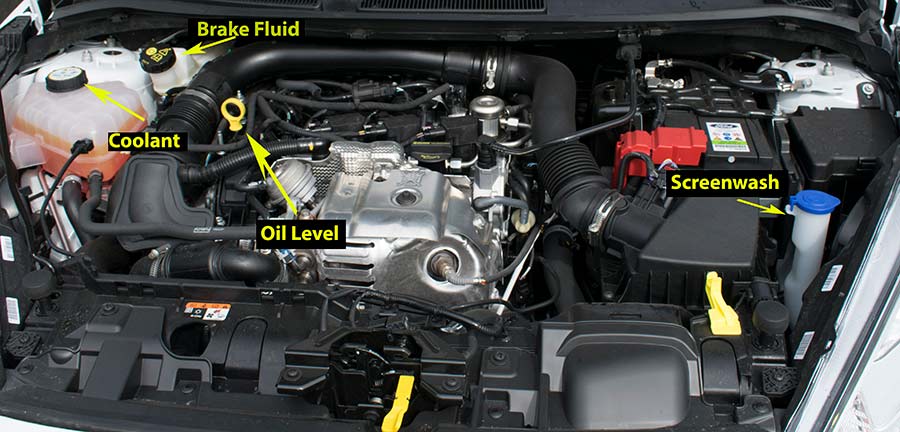How to Maintain Your Ford Fiesta Engine for Long-Term Performance
How to Maintain Your Ford Fiesta Engine for Long-Term Performance
Blog Article
Opening the Power of Engines: A Comprehensive Overview to Performance and Efficiency
Recognizing the elaborate auto mechanics of engines is critical for both performance lovers and day-to-day drivers. The responses might redefine our approach to engine efficiency and effectiveness in ways that are both enlightening and crucial.
Comprehending Engine Basics
What constitutes the essential mechanics of an engine? At its core, an engine is a machine designed to convert gas into mechanical energy via a collection of controlled surges or combustion processes.
The crankshaft after that transforms this linear movement right into rotational energy, which eventually powers the lorry. The camshaft manages the opening and closing of the shutoffs, controling the intake of air and fuel and the expulsion of exhaust gases. In addition, the engine counts on a very carefully adjusted fuel-air mix, ignition system, and cooling down system to guarantee optimal performance and effectiveness.
Comprehending engine basics likewise includes acknowledging the significance of engine cycles, such as the four-stroke cycle, which consists of intake, exhaust, compression, and power strokes. Each stage is vital in guaranteeing the engine operates smoothly and successfully. Mastery of these essential auto mechanics lays the foundation for checking out extra complex engine characteristics and efficiency metrics, important for optimizing both power outcome and efficiency.
Secret Efficiency Metrics
Trick efficiency metrics are vital for reviewing an engine's efficiency and power outcome, giving valuable understandings for both producers and consumers. These metrics work as criteria for engine performance, permitting informed decisions in style, production, and buying.
Among the key metrics is horse power, which evaluates the engine's capacity to perform job over time. Torque, measured in pound-feet, is one more vital statistics that suggests the engine's rotational force, directly affecting acceleration and hauling capability. Fuel effectiveness, usually determined in miles per gallon (MPG) or liters per 100 kilometers (L/100km), examines exactly how successfully the engine converts fuel right into activity, impacting operational prices and ecological factors to consider.
In addition, thermal performance procedures exactly how well an engine converts gas energy into valuable job, exposing insights into energy losses primarily via warmth. Discharge levels, consisting of CO2 and NOx, are additionally essential, showing the engine's environmental influence and conformity with regulative standards.

Tuning Strategies for Efficiency
Tuning methods play a considerable duty in boosting engine performance by optimizing efficiency metrics recognized in earlier discussions (ford fiesta engine). Various methods exist to fine-tune an engine, each contributing to improved fuel economic climate and minimized discharges
One efficient method is changing the air-fuel ratio, guaranteeing the engine operates within the ideal combustion regime. A leaner mixture can enhance gas performance, yet it has to be stabilized to protect against misfires or engine knock. In addition, reprogramming the engine administration system can alter specifications such as ignition timing, which better boosts efficiency while keeping power result.
An additional important technique involves modifying the intake and exhaust systems. Updating to high-performance air filters and exhaust headers can decrease back pressure, promoting far better air movement. This allows the engine to breathe even more easily, resulting in enhanced burning effectiveness.
Additionally, the implementation of innovative adjusting tools, like dyno testing, supplies specific data that makes it possible for targeted modifications. On a regular basis checking these performance metrics makes certain that tuning efforts yield the preferred efficiency end results. Collectively, these techniques not just boost engine performance however also add to long-term sustainability in engine procedures.
Maintenance for Optimum Performance
Routine engine upkeep is necessary for achieving ideal performance and durability. A well-maintained engine not only runs efficiently however also decreases the risk of expensive repairs and break downs. Trick components needing regular interest consist of oil, filters, belts, and ignition system.
Altering the find more info engine oil at advised periods is vital, as oil lubes moving parts and protects against overheating. Changing oil and air filters ensures that contaminants do not hinder engine feature. Disregarding these components can result in minimized performance and possible engine damages.
Additionally, examining and changing used belts and tubes is essential to stop sudden failures. Timing belts, in specific, ought to be replaced according to the maker's routine to prevent tragic engine damages.
Ignition system need to additionally be examined and changed as essential, since they play an essential role in ignition and fuel efficiency.
Future Trends in Engine Technology
Welcoming innovations in modern technology, the future of engine style is positioned to change efficiency and effectiveness throughout different applications. Hybrid and totally electric powertrains are ending up being increasingly conventional, using reduced exhausts and enhanced fuel efficiency.
In addition, developments in products science are bring about lighter, stronger components that boost engine performance while lowering energy intake. Advanced manufacturing methods, such as 3D printing, allow for the production of complicated geometries that boost airflow and thermal monitoring, thus enhancing burning processes.
In addition, this hyperlink the integration of fabricated intelligence and maker understanding is readied to change engine diagnostics and performance adjusting. These innovations can evaluate vast amounts of data in actual time, making it possible for predictive maintenance and tailored efficiency improvements.
Final Thought
In final thought, unlocking the power of engines needs a detailed understanding of their auto mechanics and efficiency metrics. Carrying out efficient tuning techniques and adhering to normal upkeep practices significantly enhance engine capacities.
Additionally, the engine counts on a thoroughly calibrated fuel-air combination, ignition system, and cooling down system to guarantee optimal efficiency and efficiency.
Recognizing engine essentials also involves identifying the importance of engine cycles, such as the four-stroke cycle, which includes consumption, check my source power, exhaust, and compression strokes. Proficiency of these essential mechanics lays the groundwork for exploring a lot more complex engine characteristics and performance metrics, crucial for enhancing both power output and effectiveness.

Accepting innovations in modern technology, the future of engine layout is positioned to change efficiency and effectiveness across various applications.
Report this page